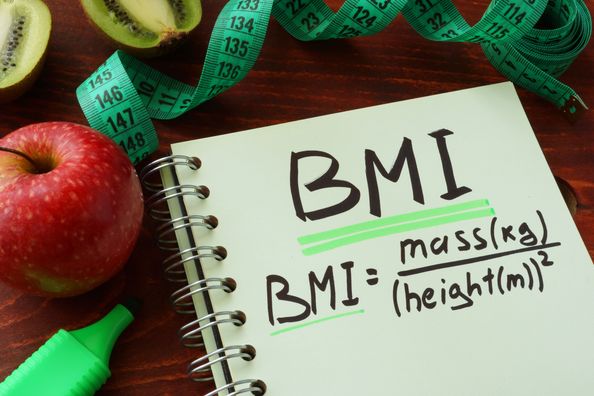Are you making New Year’s goals?
This time of year it is easy to look in the mirror and think about setting New Year’s resolutions around losing weight. A lot of us work in absolutes. For example, if I am 5’4”, then I should weigh 120 pounds, or if my BMI is 30 then I am obese. Weight is definitely a factor when it comes to health, but so are all the behaviors associated with healthy bodies like regular physical activity, healthy eating, stress management, and abstaining from substance abuse. Weight alone is not the only thing that counts in health, and tools like BMI may be easy to calculate, but they are not the only number that matters to determine well-being.
What is BMI?
BMI is a tool but not the end-all-be-all defining factor of our lives. BMI or “body mass index” is a measure of someone’s weight in kilograms divided by their height in meters squared. The number this gives us is used to gauge if someone is potentially carrying excess fat for their size. BMI alone does not take into account daily habits, muscle mass, water retention, or a variety of other factors. At the end of the day, this number is, well, just a number. Whatever your BMI is should not keep you awake at night. Instead of stressing about your BMI, I recommend focusing on behaviors that can improve mobility, energy levels, flexibility, or nutrition status.
How much does BMI matter?
QMG Wellness Chef, Sierra, graciously allowed me to write about her this week as an explanation on how BMI does not always give us all the answers. Sierra and I are both very healthy people. We both work out regularly, we bond over our love of unique fruits and veggies, eat out infrequently, manage stress, and stay well hydrated. Saying this, we eat very different meals, have completely different workout routines, and different BMI values.
Bottom Line:
Just looking at someone is not a way to assess health, and just looking at BMI does not give us all the answers either. Sierra technically weighs more than me, but she does Crossfit almost every day and is incredibly muscular (it is super amazing). In fact, my body fat percentage is actually about 5% HIGHER even though my BMI is lower than hers. Again, just looking at someone is not a way to determine health. Laboratory data, composition analysis, and health history questionnaires all assist healthcare practitioners in determining an individual’s health status. I may weigh less, but Sierra has a lot more muscle than me. In fact, if you were to go to the gym with us, Sierra can lift about four times as much as I can. As a chef, she eats a very healthful and flavorful diet packed with lean proteins, while I eat plant-foods most of the day. Although our fitness and dietary habits are different, both of our annual labs looked good and we would definitely both consider the other healthy.
This year when determining your health goals, instead of saying “I want to lose weight”, choose to work on things like being more active, reducing processed snack foods, eliminating sugary beverages, or other behaviors that influence health. Take care of yourself this year.
For more information or to speak with a Registered Dietitian, call 217−222−6550, ext. 3481.
Health Topics:







